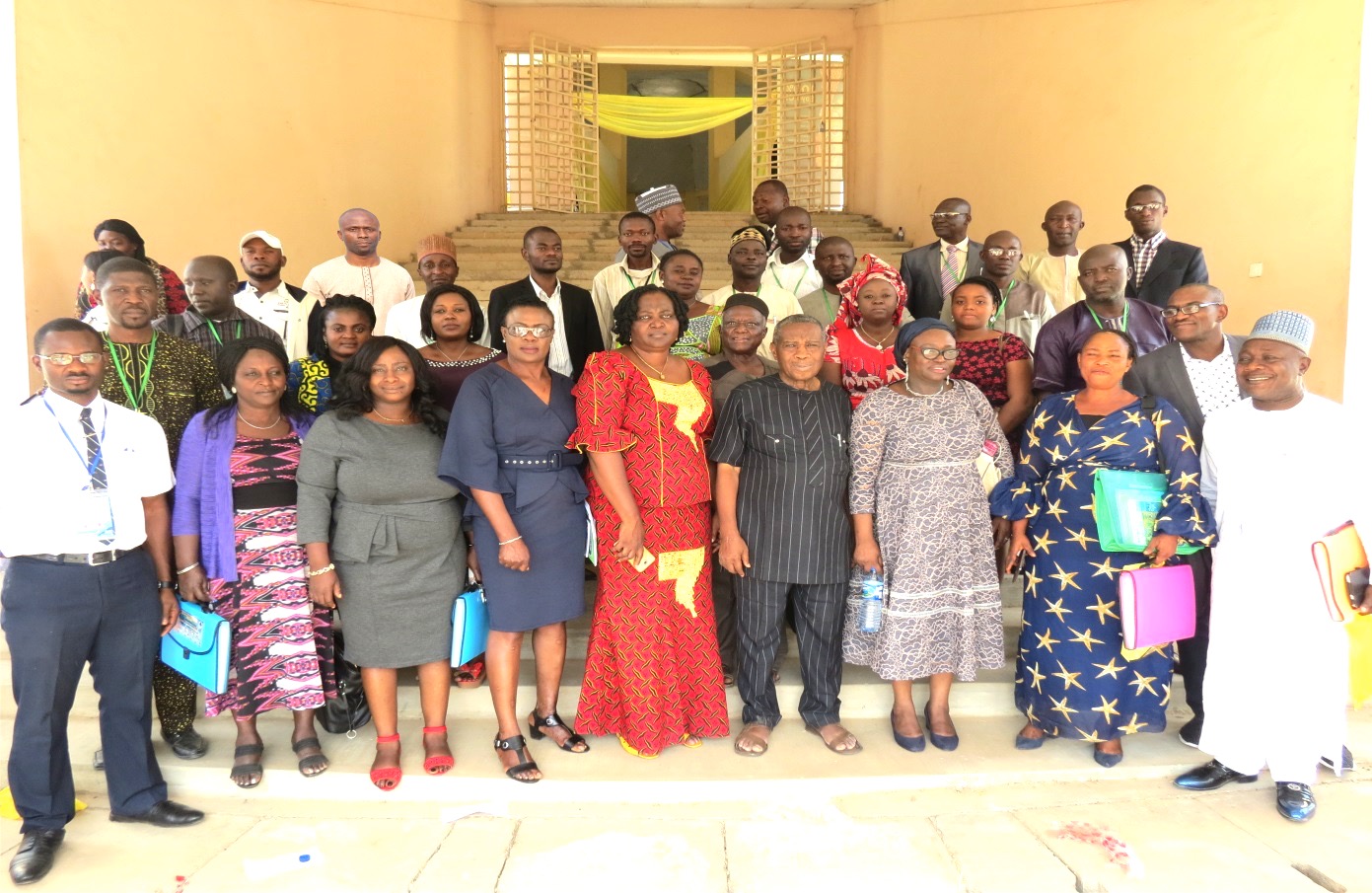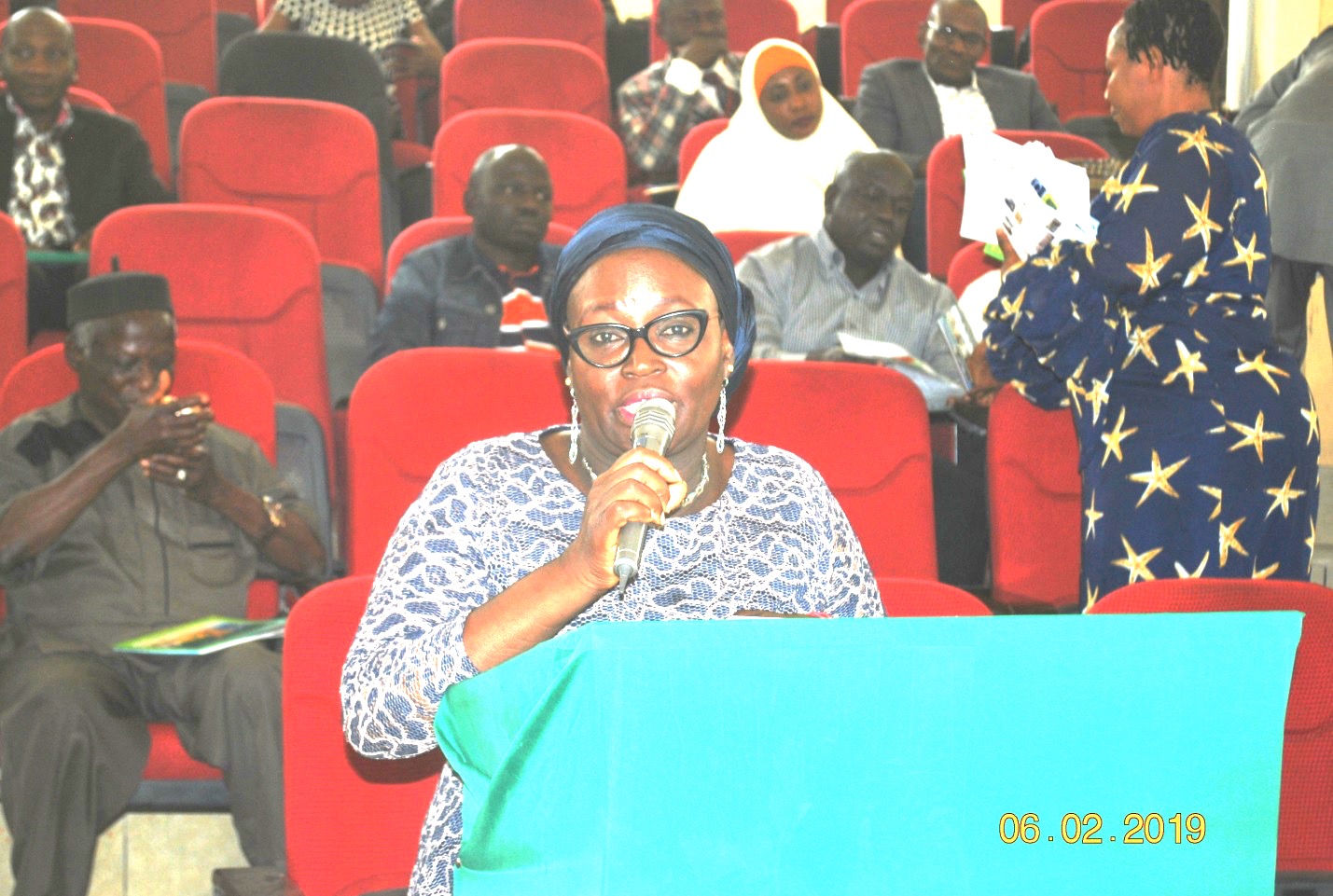INDEPTH: Highlights of maiden sub-regional congress of Organization of Professional Biotechnologists and Bioengineers of West Africa
Recently, the Organization of Professional Biotechnologists and Bioengineers of West Africa (OPBBWA) held its maiden sub-regional congress themed: “Unlocking the Indigenous Biotechnology Potentials of West Africa.”

The Organization of Professional Biotechnologists and Bioengineers of West Africa (OPBBWA) is the professional guild of trained biotechnologists and bioengineers in the West African sub-region. OPBBWA’s mission is to enable West Africans acquire the necessary biotechnology and bioengineering professional skills that would ultimately lead to the achievement of comfortable living standards for the people and the complete elimination of extreme poverty through the creation of millions of biotechnology jobs.
Recently, the OPBBWA held its maiden sub-regional congress in collaboration with the Forestry Institute of Nigeria (FRIN) at the premises of the Federal College of Forestry, Jos, Nigeria. The Congress themed: “Unlocking the Indigenous Biotechnology Potentials of West Africa” was aimed at offering biotechnology stakeholders within the West African sub-region a great opportunity to exchange ideas and rethink the strategy for the development of biotechnology.
The Congress was also geared towards finding solutions to the sub-region’s economic, health, environmental problems, using the tool of biotechnology. Amongst others, the objectives of the Congress were to critically discuss the effectiveness of the sub-region’s biotechnology development approach; chart a new course for an all-inclusive and functional biotechnology approach that leverages on the indigenous biotechnology culture of West Africans towards solving West Africa’s unique problems; as well as provide opportunity for the exhibition of biotechnology and bioengineering products by researchers, industries, and other organizations.
The three-day congress featured an opening ceremony, plenaries, technical sessions as well as an exhibition. Amongst many others, speakers at the opening ceremony included the Acting Director General of National Biotechnology Development Agency Prof. Alex Akpa; the Director General and CEO of the National Biosafety and Management Agency Dr Rufus Ebegba as well as the Executive Chairman of Organisation of Professional Biotechnologists and Bioengineers of West Africa cum President of the Biotechnology Society of Nigeria Prof Benjamin Ubi.
Others were the Country Coordinator of the Open Forum for Agricultural Biotechnology in Africa (OFAB) Nigeria Dr Rose Gidado – who also served as the representative of the Honorable Minister of Science and Technology Dr Ogbonnaya Onu – as well as Pioneer Director General cum CEO of the National Biotechnology Development Agency Prof C.P. Emeka Omaliko who delivered the keynote address at the Congress.
While delivering the keynote titled: “Unlocking Indigenous Biotechnology Potentials Of West Africa,” Prof Omaliko remarked that Traditional Biotechnology, which involves conventional, West African indigenous and time-tested techniques, which have been used for many centuries to produce beer, wine, cheese, bread, vinegar, yoghurt, additives, and vitamins, amongst others. He defined Indigenous knowledge (IK) otherwise known as Traditional Knowledge as “a body of knowledge based on facts, information, understanding and skills that had been in existence and which emanated from a group of people from a particular place being the natural abode of inhabitants.”
“Based on Africa’s population growth rate of 3.1% per annum and projected population of 2.5 billion by 2050, it is regrettable to say the population growth has not been commensurate with developmental growth in the food and agricultural sector…Biotechnology is slowly gaining acceptance as various governments in Africa have recognised biotechnology’s critical role in solving food shortage problem,” said Omaliko.
Omaliko, however, said unlocking the potentials of indigenous biotechnology of West Africa could only be achieved through the use of special programmes which revolve around development of what he termed the Village Technology Initiative (VIT) which he said were believed to have great potential for effectively jump-starting the application of biotechnology and other technologies at the village level. He therefore said the VITs could serve as demonstration centres that would dramatically improve life in the rural sector through the development of sustainable enterprises to encourage indigenous biotech products.
Earlier on and while welcoming delegates to the Congress, Executive Chairman of OPBBWA Professor C.I.C. Ogbonna described his organisation as an umbrella body uniting professionally-trained biotechnologists and bioengineers of West Africa which he said was also linked with the broader West African community of science and technology. He said, OPBBWA’s sole purpose was that of furthering knowledge and advising the various West African governments on how to provide the dividends of biotechnology to their citizens.
“The West Africa sub region has lost the trend of biotechnology development and lagged behind…That the sub region had dropped behind from the race it started with the rest of the world in the closing of the 1970s. The only option left is for the region to develop its indigenous biotechnology and carve out industries that would meet the needs of the people from it. There are fewer difficulties in setting up regional coordinating mechanisms than those by individual national systems,” he said.
Ogbona also stated that unlocking the indigenous biotechnology potentials of West Africa would entail the unlocking the potentials of both its plant and animal genetic resources. “Plant genetic resources comprise the whole genetic heritage of all varieties and species of plants cultivated in any given region as well as their wild and semi-domesticate relatives. The genetic heritage can also include the entire flora of the region.”
In his remarks, President of the Biotechnology Society of Nigeria (BSN) Prof. Benjamin Ewa Ubi, said BSN was focused on promoting all aspects of biotechnology in the country including its applications in agriculture, medicine, sustainable environmental management and industrial development. “BSN is therefore very pleased to be present at this epoch making event of the first sub-regional biotechnology congress. West Africa, as with the rest of sub-saharan Africa, is a natural resource-rich region which has yet to be sustainably tapped and consequently unacceptably high poverty index prevails among her people,” he said.
Ubi said Nigeria, for instance, was projected to have a population of approximately 430 million by 2050 when the world population was estimated to reach 9 billion; this population dynamics in Nigeria and the entire West African region raises serious socio-economic concerns. For this, Ubi believed deployment of biotechnology as an innovative tool to drive the industrial revolution for the growing population in the sub-region was inevitable.
“Biotechnological innovations are needed to build a robust bio-economy that can transform the rich bio-resources in West Africa into valurized (i.e. value-added) finished products for attainment of food & nutrition Security, affordable drugs for improved healthcare delivery and combat emerging diseases, feed/feed supplements for livestock production, clothing needs and sustainable ecosystems for a growing population in the face of increasing climate change,” he said.

In his opening remarks, delivered earlier, the Honourable Minister of Science and Technology Dr. Ogbonnaya Onu, who was represented by Dr. Rose Maxwell Gidado of the National Biotechnology Development Agency (NABDA), said Nigeria as a nation had joined the community of nations that were making practical efforts at adapting and deploying technology to meet critical national challenges.
“In doing so, the Nigerian Scientists are showing increasingly that technology is a global tool that can be adapted and deployed to meet indigenous and localized peculiarities in food, environment, health and industry. The Federal Ministry of Science and Technology will support technologies that are safe and efficient, including biotechnology in all its ramifications. The recent sub-regional achievements in the adaptation and deployment of scientific principles to meet national needs show that science and technology adaptation and deployment have come to stay,” said Onu.
He said the field of biotechnology, which had been deployed globally to meet existing challenges, held huge potentials for the development of the West African Sub-region, noting the rapid pace of the deployment of biotechnology in Nigeria, Ghana and Burkina Faso. Onu cited the example of the recent release of two varieties of BT Cotton and the approval for the release of the Maruca-resistant Cowpea in Nigeria as strong indications that Nigeria and indeed West Africa were on the right path in terms of biotechnology adaptation and deployment.
“The benefits of modern and advanced biotechnology as we have experienced in the collaborations between the various research and developmental agencies in the West African sub-region deserve increased support from governments and the civil society organizations…The government of Nigeria through the Federal Ministry of Science and Technology will not relent in the pursuit of modern biotechnology including genetic engineering, bioinformatics and recombinant DNA technology among others. Hence, it behooves us to continue to advance the existing biosafety measures in place to guarantee responsible adaptation and deployment of biotechnology in Nigeria and the West African sub-region,” he concluded.
Director General and Chief Executive Officer of the National Biosafety Management Agency (NBMA) Dr. Rufus Ebegba, in a paper titled: ‘‘Dangers Of Unethical introduction and Circulation of Genetically Modified Products in West Africa By Multinational Companies and the Threat posed by this in the Development of Indigenous Biotechnology,” expressed his delight at the choice of the theme for the maiden Congress i.e “Unlocking the Indigenous Biotechnology Potentials of West Africa.”
Ebegba, who was represented by Abisabo Adamu, said the potential risks associated with GM crops were the sole responsibility of the NBMA to address adding that the Agency was charged with the responsibility of providing regulatory framework, institutional and administrative mechanism for safety measures in the application of modern bio-technology and the use of genetically modified organisms in Nigeria, with the view to preventing any adverse impact on human health, animals, plants and environment safety.
“It is in the light of the above that biosafety has become a means of addressing potential adverse impacts of modern biotechnology and genetically modified organisms (GMOs) on the conservation and sustainable use of biodiversity taking into account risk to human health. Accordingly, the application of modern biotechnology under a legal framework is a valuable tool for addressing the several global and national challenges in the areas of human health, agriculture, environment, industry, poverty and unemployment,” stated Ebegba.
The maiden congress of the Organisation of Professional Biotechnologists and Bioengineers of West Africa (OPBBWA) had as subthemes, “Dangers Of Unethical Introduction and Circulation of Genetically-Modified Products in West Africa by Multinational Companies and the Threat Posed by this in the Development of Indigenous Biotechnology”; and “Biodiversity Conservation for Sustainable Economic Development. There were also subthemes like “Ecological Control, Bioremediation, Waste Management and Quality Environment”; “Agricultural Biotechnology Mechanization and Food Security as well as “West Africa Indigenous Biotechnology and Self-sufficiency in West Africa”, amongst others.









